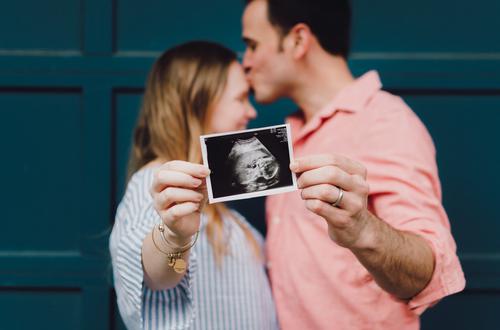How to Get Pregnant Quickly and Factors That Affect the Rate of Conception
It is a common belief that you will get pregnant immediately whenever you try. In reality, it will take a little longer for most of you. When you are trying to become pregnant, there are many factors that play a vital role in your chances of getting a hit and ultimately conceiving.
There are many factors that come into play when you are trying to conceive, such as physical well-being, reproductive health, emotional health, regular sex, proper diet, age or any medical condition you suffer from. How long does it take after conception to become pregnant also varies among individuals and usually takes 7 to 15 days?
Let's take a closer look at the journey from trying to conceive to actually getting pregnant.
How Long Does It Take to Get Pregnant?
Extensive scientific research has been conducted in this field. The amount of time a couple normally takes to get pregnant naturally is mentioned below:
-
30-38% of couples are able to get pregnant within 1 month of trying.
-
60-68% of couples are able to get pregnant within 3 months of trying.
-
About 80% of couples get pregnant within a time frame of 6 months.
-
About 90% of couples get pregnant within 1 year.
There are many reasons why there are such wide variations in the time frames from 1 month to more than a year if you are trying for a natural pregnancy.
1. Age
This is a very important factor in your chances of conception. Couples in their 20s have the best hit rate, up to an age of around 32 years. So, older couples usually need much more time than their younger counterparts.
2. Menstrual cycle
Sometimes you are simply not trying at the right time. The right time is approximately 24-36 hours prior to ovulation, which in simple words means somewhere around the middle of your monthly cycle. This is because ovulation usually happens two weeks before your next period. You can get pregnant at any time during the month, but the probability is highest during this time, and if you are trying only outside of this period, then maybe you should shift from the 1-month bracket to the 6-month bracket or any time frame for that matter!
3. Regular sex

Couples confuse frequency of sex with regular sex. Regular sex means sex at an interval of no more or less than 2-3 days between times, and it should not just be foreplay or masturbation. It must include a proper insertion and ejaculation into the female reproductive part.
4. Stress
Alpha-amylase, which is a hormone produced under stress, slows the passage of the fertilized egg towards the uterus and thus hinders implantation and pregnancy. So if you are stressed, that may be why you are not getting pregnant and you may be unknowingly further reducing your chances of getting pregnant. Therefore there are different time frames for different people to get pregnant, as everybody has her own stress tolerance level.
5. Body temperature
Many times, people suffer from extreme hot or cold due to some disorders like thyroidism, etc. However, conception and pregnancy demand an optimum consistent body temperature. Therefore, couples with such conditions will require a lot longer to get pregnant.
6. Medical conditions
Sometimes there are medical conditions, such as ovarian cysts or polyps, which couples become aware of only when they start trying. So they have to first get cured, which obviously takes some time, and then try for pregnancy. This, on the whole, changes the time period for them.
Tips to Help You Conceive Quickly
- Chart your cycle
Always chart your cycle precisely. This tells you the right time (mostly a week before ovulation) and times of ovulation. There are many medical tests like ultrasound, etc., which can help you to determine your best periods of trying. You can also do this at home simply by charting your body temperature, as it is normally 96 to 99 degrees Fahrenheit for women during their non-ovulating time, and mostly half a degree higher during ovulatory times. So by charting for a few months, you will get to know your pattern and when you must try.
- Reduce stress
You can indulge in dancing, yoga, exercise and meditation to relieve yourself of some stress, which will definitely improve the chances of getting pregnant. Research shows that about 30% of women who fail to conceive in the first 6 months suffer from stress, which further delays their big day.
- Keeping a healthy lifestyle
Being underweight or overweight both affect the pregnancy rate adversely, so maintain a good weight and health to become pregnant fast. You must eat a balanced diet and Omega 3 and DHA-rich foods, such as salmon, eggs, dairy products, etc. and have a healthy emotional connection with your partner.
- Medical intervention
Sometimes your partner may have a poor sperm count or quality, or your female reproductive organs might have some problem, so consult a doctor in such cases to get diagnosed and treated for pregnancy-relatedated problems.

On the Whole
Thus, how long does it take to become pregnant has no written rules, and can vary for different pregnancies of the same couple even. On the whole, if you want to have babies, try to have them at the right age, and do not worry if you are taking some time to conceive. It is normal and many couples conceive naturally even after a year or so of trying. However, if you are very eager, you can consult your doctor, instead of simply getting overly worried.
YOU MAY LIKE
-
Plan B and Birth Control – Best Tips for You
-
How to Get Rid of Genital Warts
-
Nature’s Fertility Boosters
-
Virgin or Non-Virgin: Is There a Difference?
-
Hermaphrodite Species and Intersex Humans
-
How to Get Pregnant When You Have PCOS
-
8 Most Effective Pressure Points to Induce Labor
-
What Does 2 Cm Dilation Mean: A Must Read for All Moms
-
Getting to Know Your Baby’s Flutters
-
6 Best Ways You Can Try at Home to Increase the Chance of Pregnancy
